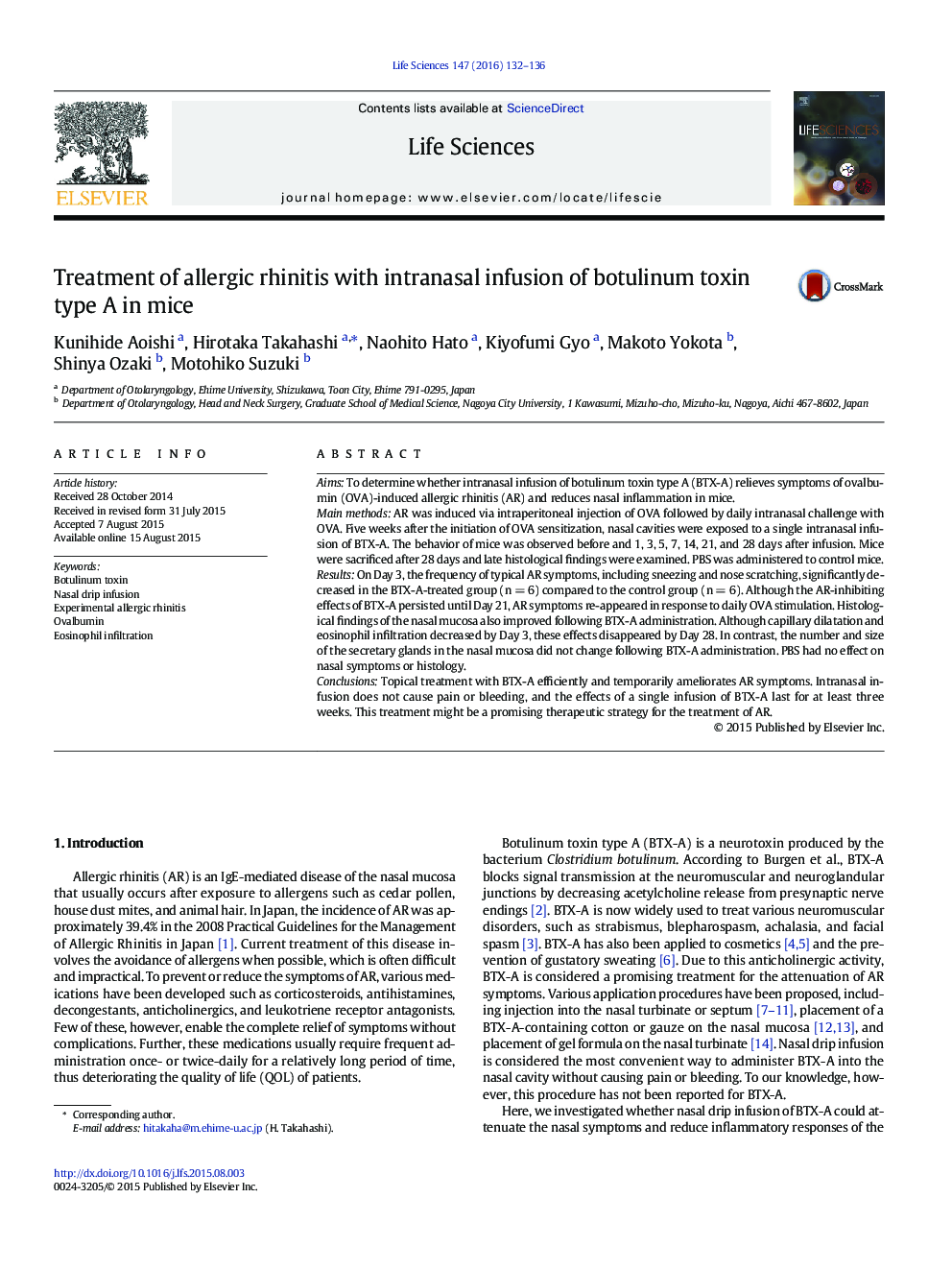| Article ID | Journal | Published Year | Pages | File Type |
|---|---|---|---|---|
| 2550593 | Life Sciences | 2016 | 5 Pages |
AimsTo determine whether intranasal infusion of botulinum toxin type A (BTX-A) relieves symptoms of ovalbumin (OVA)-induced allergic rhinitis (AR) and reduces nasal inflammation in mice.Main methodsAR was induced via intraperitoneal injection of OVA followed by daily intranasal challenge with OVA. Five weeks after the initiation of OVA sensitization, nasal cavities were exposed to a single intranasal infusion of BTX-A. The behavior of mice was observed before and 1, 3, 5, 7, 14, 21, and 28 days after infusion. Mice were sacrificed after 28 days and late histological findings were examined. PBS was administered to control mice.ResultsOn Day 3, the frequency of typical AR symptoms, including sneezing and nose scratching, significantly decreased in the BTX-A-treated group (n = 6) compared to the control group (n = 6). Although the AR-inhibiting effects of BTX-A persisted until Day 21, AR symptoms re-appeared in response to daily OVA stimulation. Histological findings of the nasal mucosa also improved following BTX-A administration. Although capillary dilatation and eosinophil infiltration decreased by Day 3, these effects disappeared by Day 28. In contrast, the number and size of the secretary glands in the nasal mucosa did not change following BTX-A administration. PBS had no effect on nasal symptoms or histology.ConclusionsTopical treatment with BTX-A efficiently and temporarily ameliorates AR symptoms. Intranasal infusion does not cause pain or bleeding, and the effects of a single infusion of BTX-A last for at least three weeks. This treatment might be a promising therapeutic strategy for the treatment of AR.
